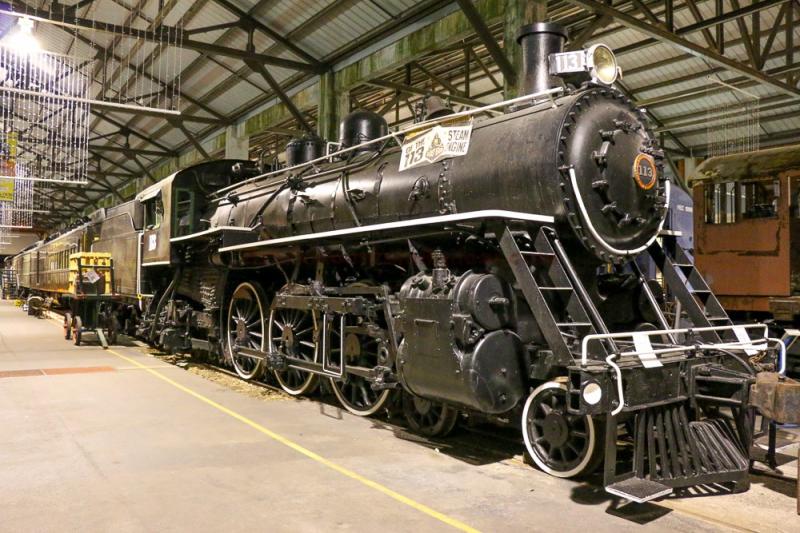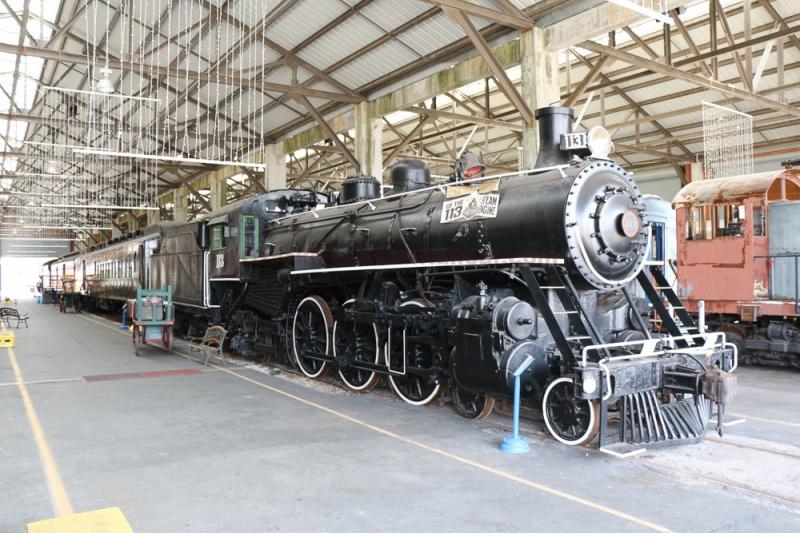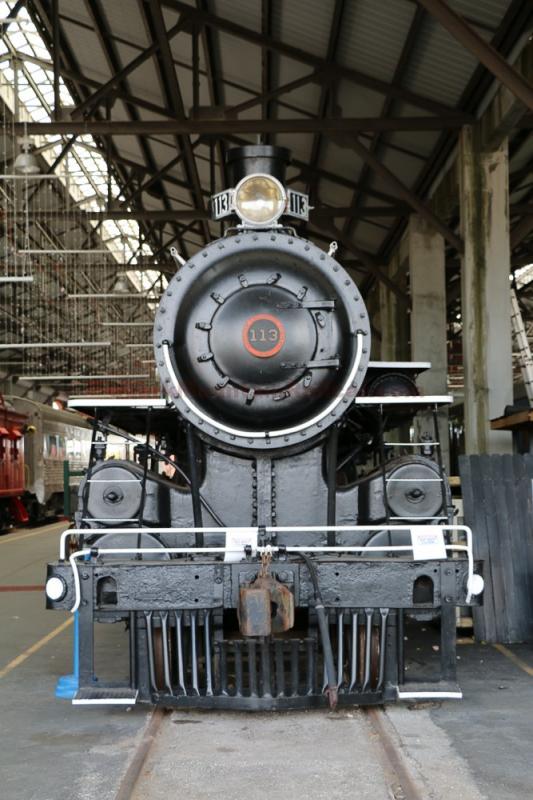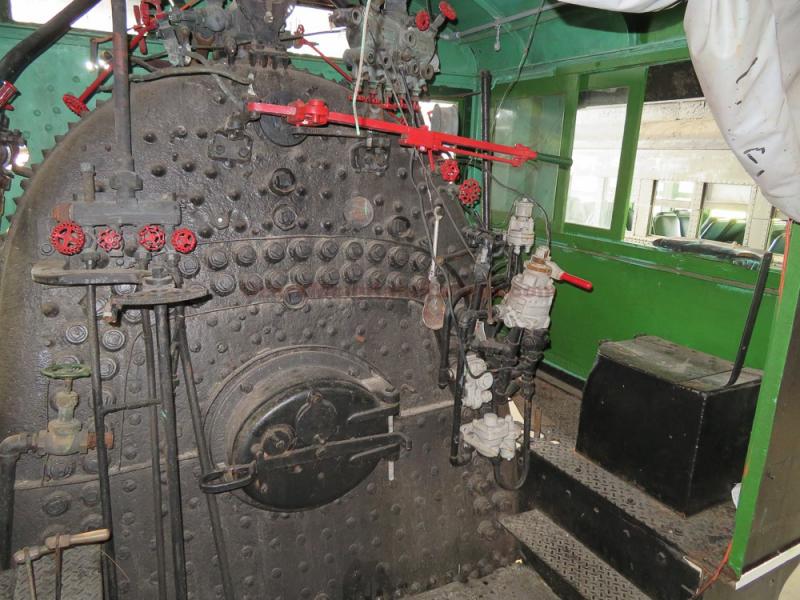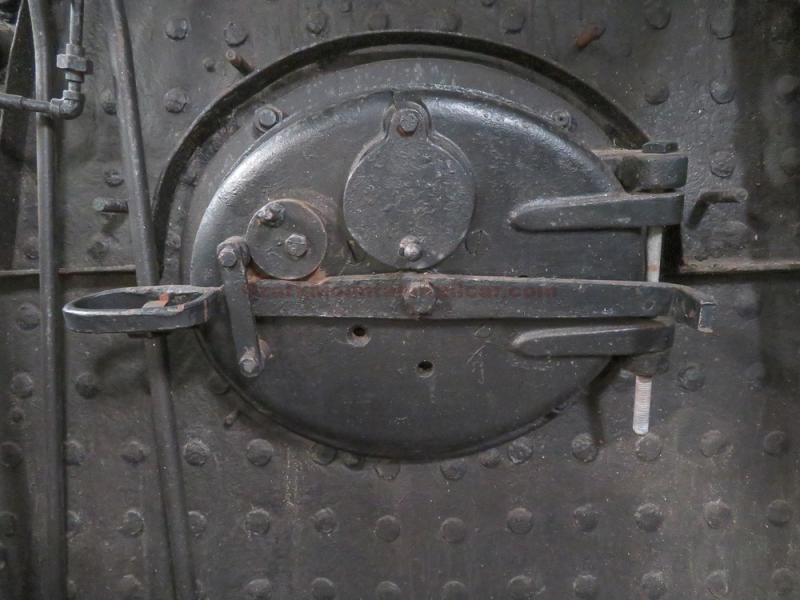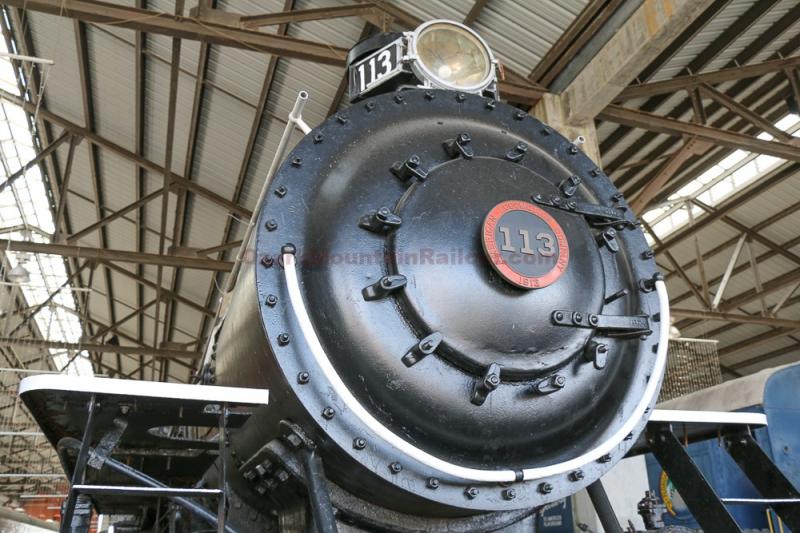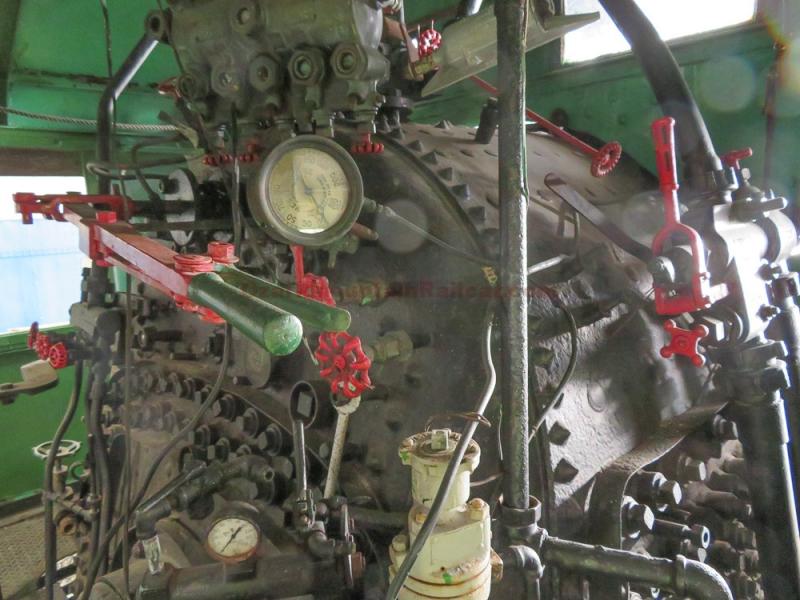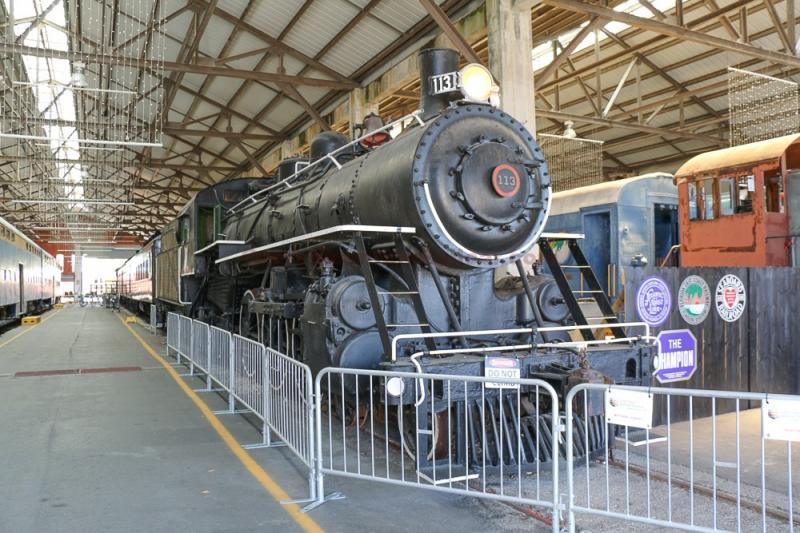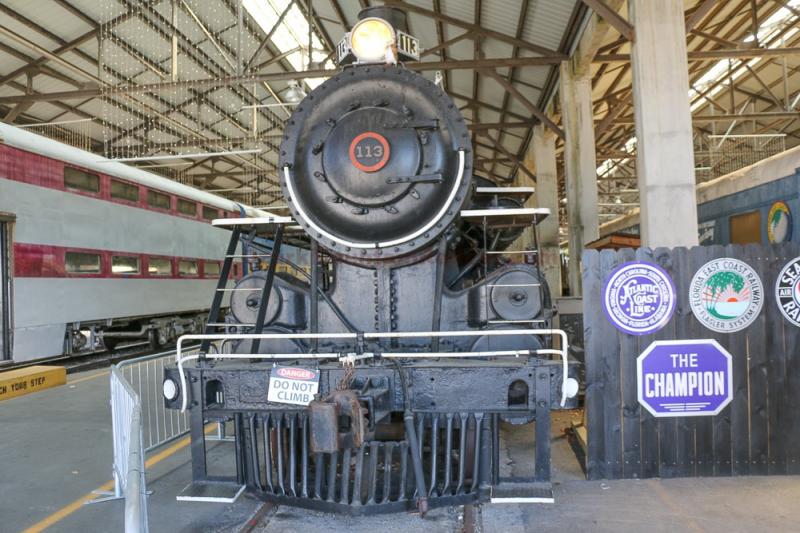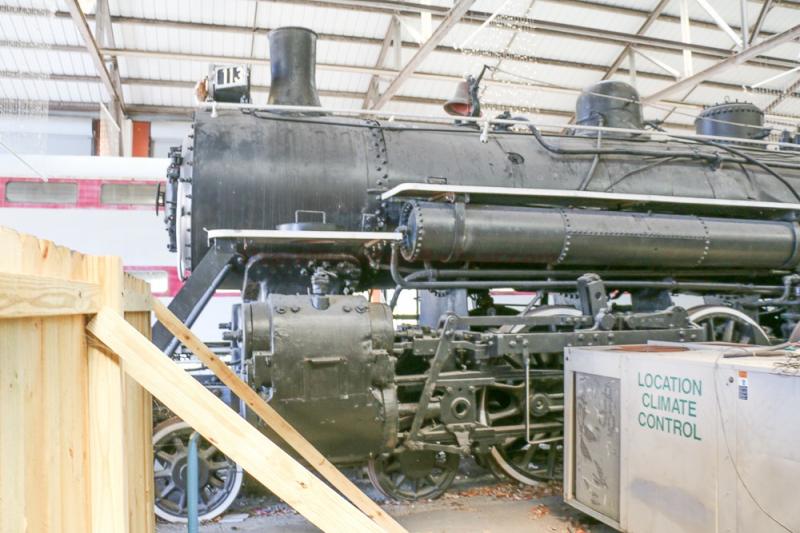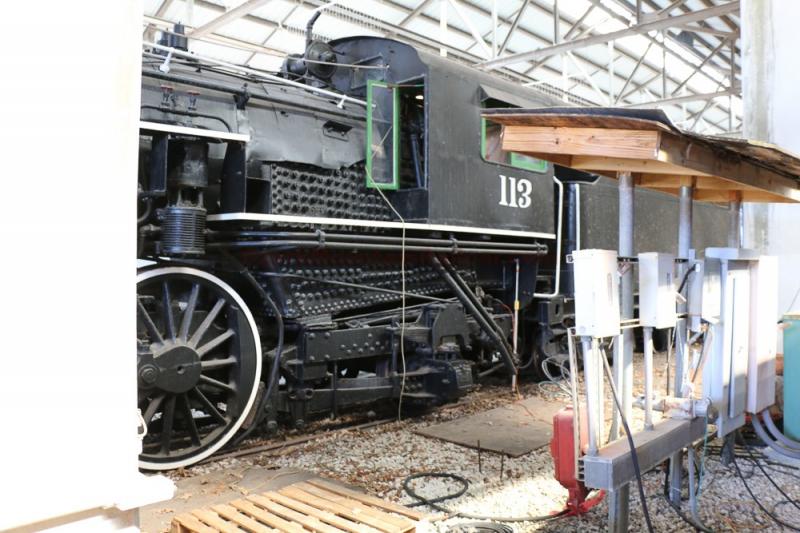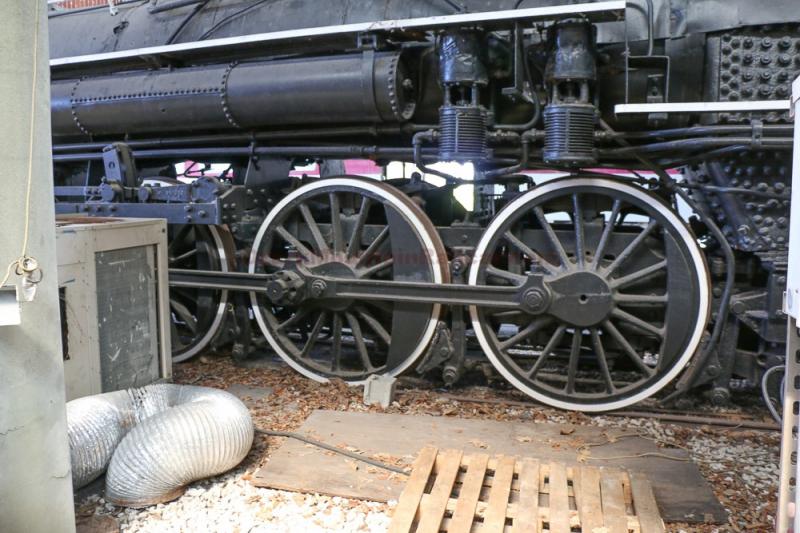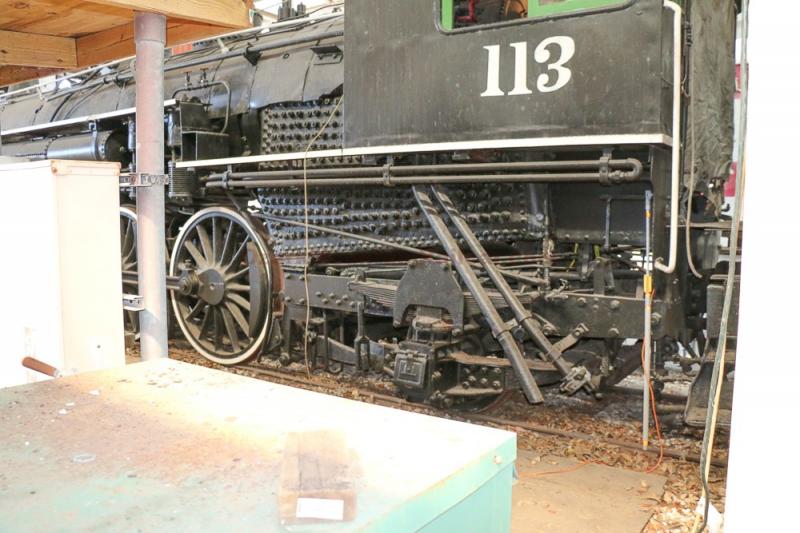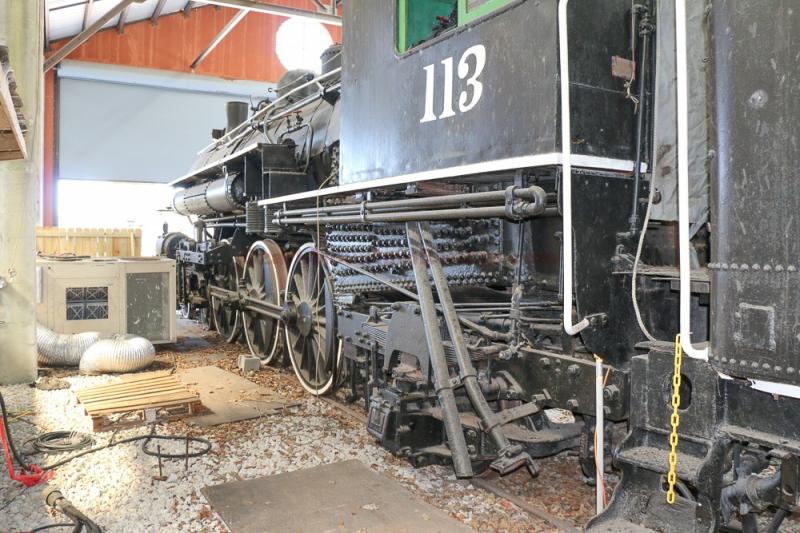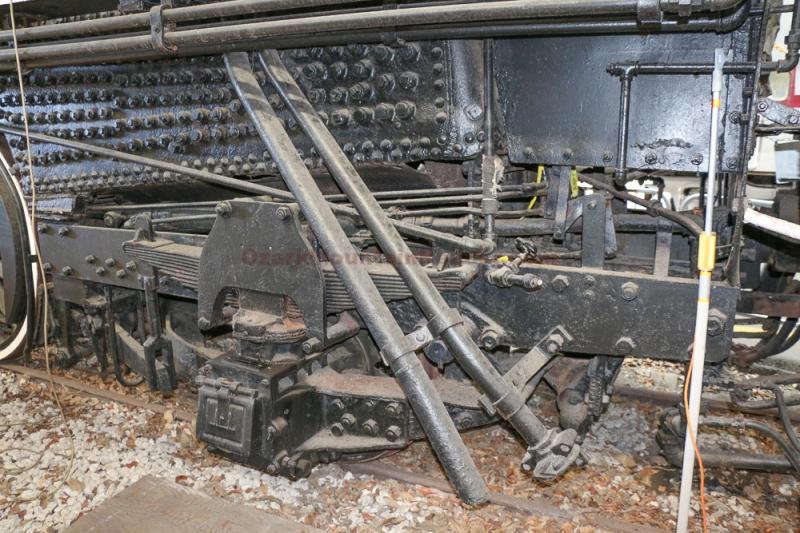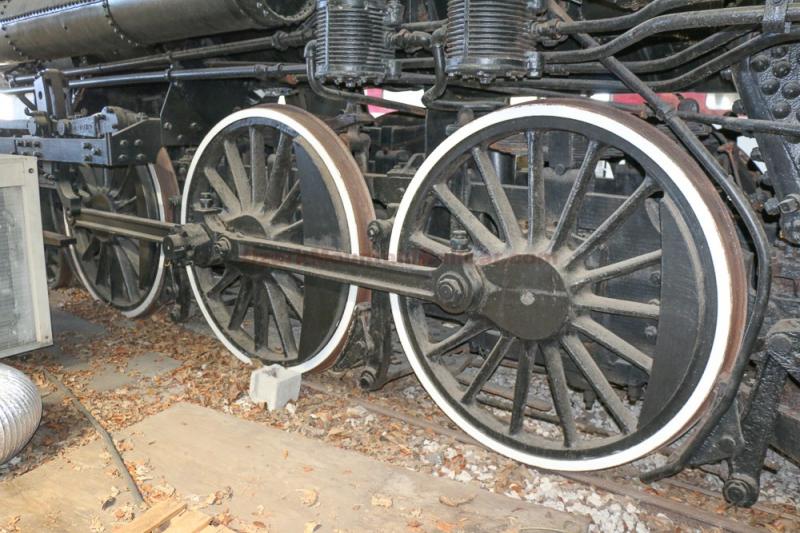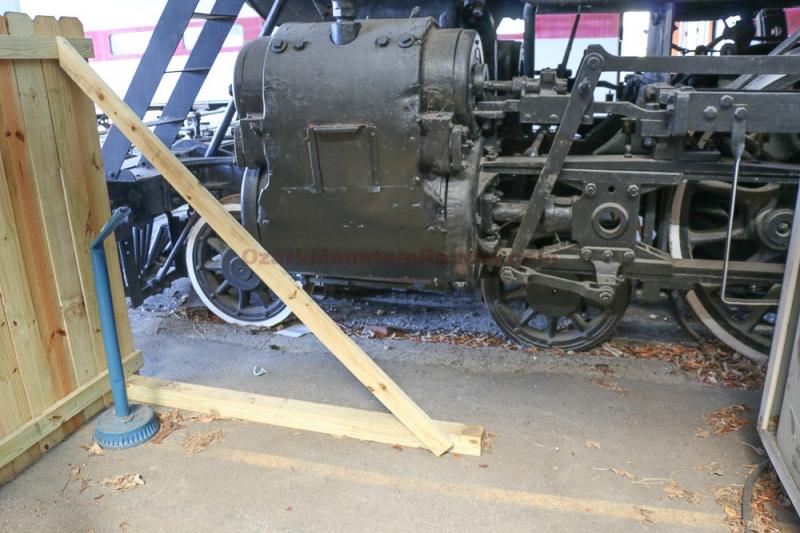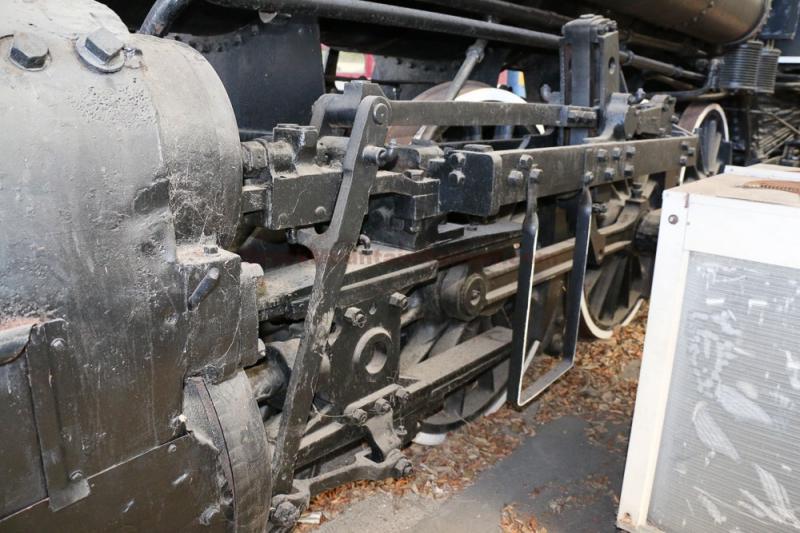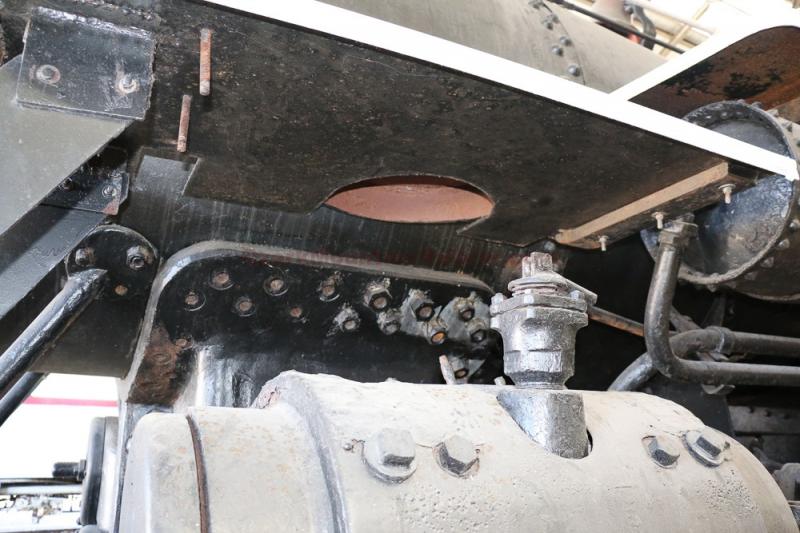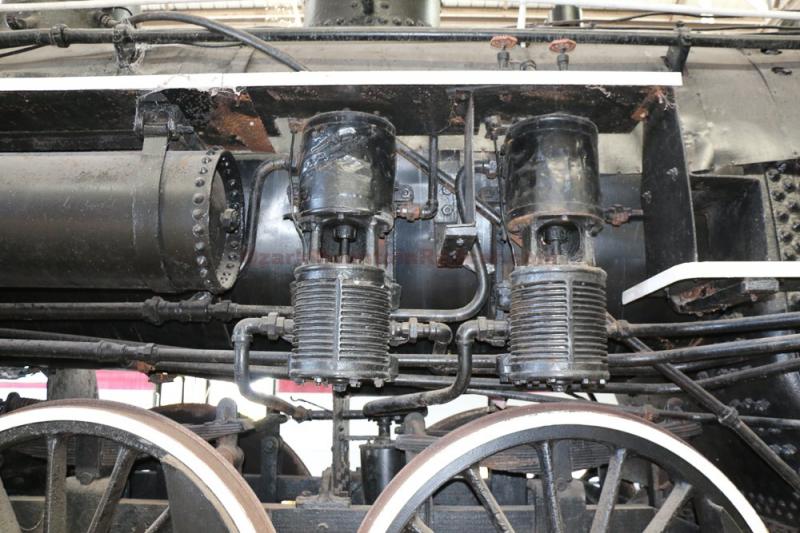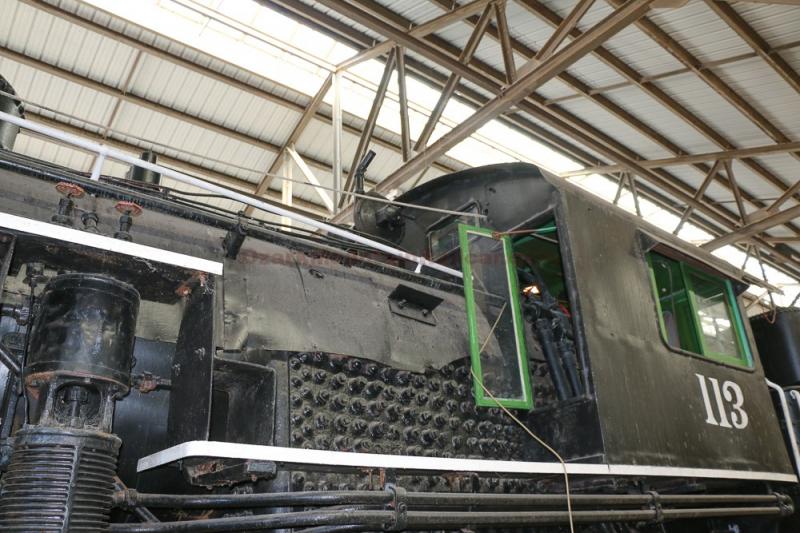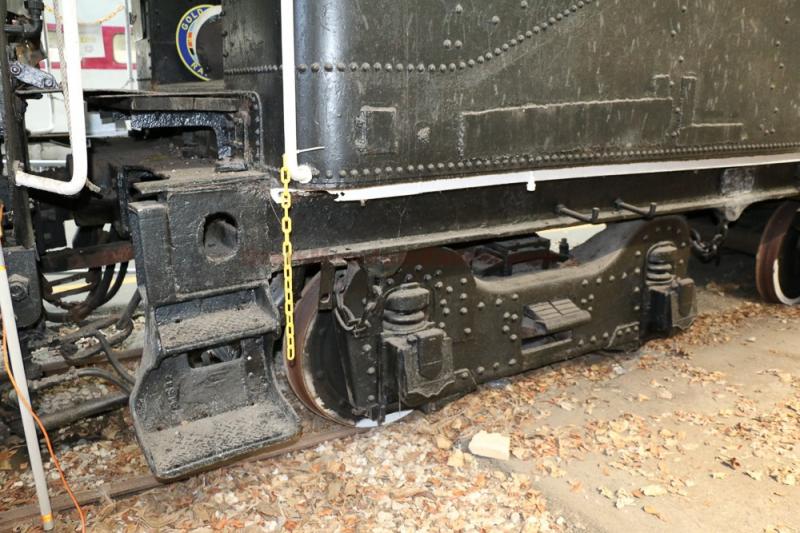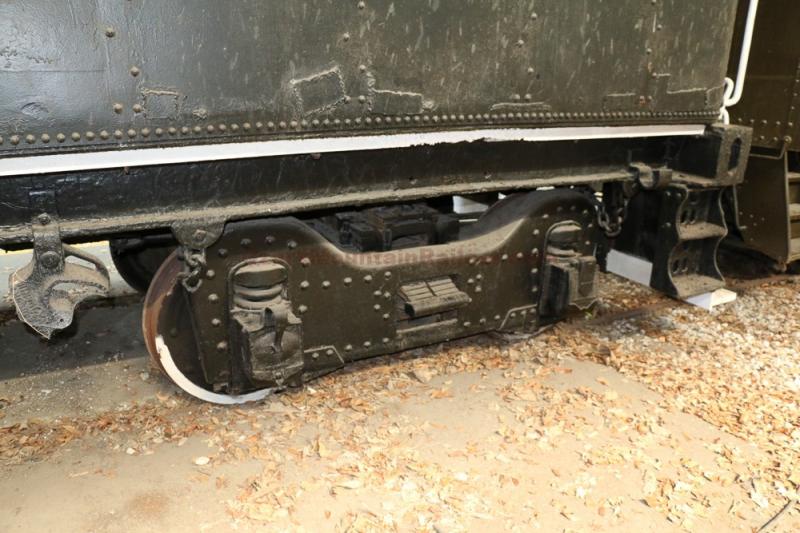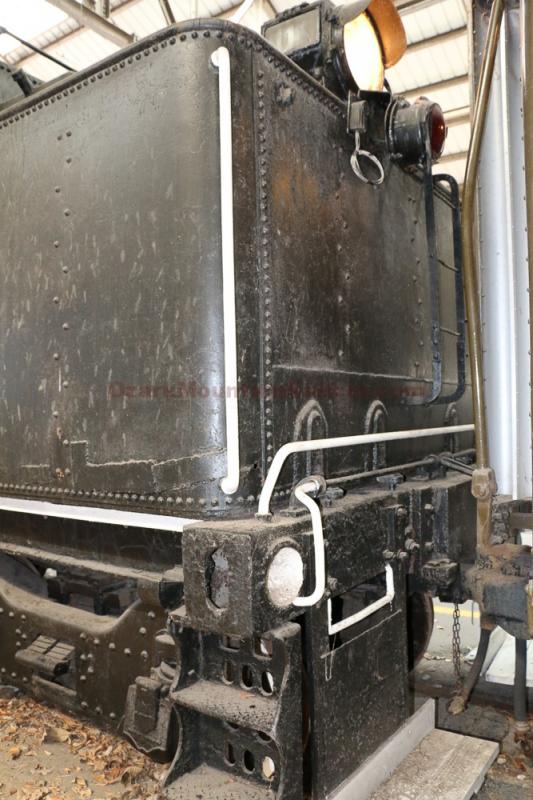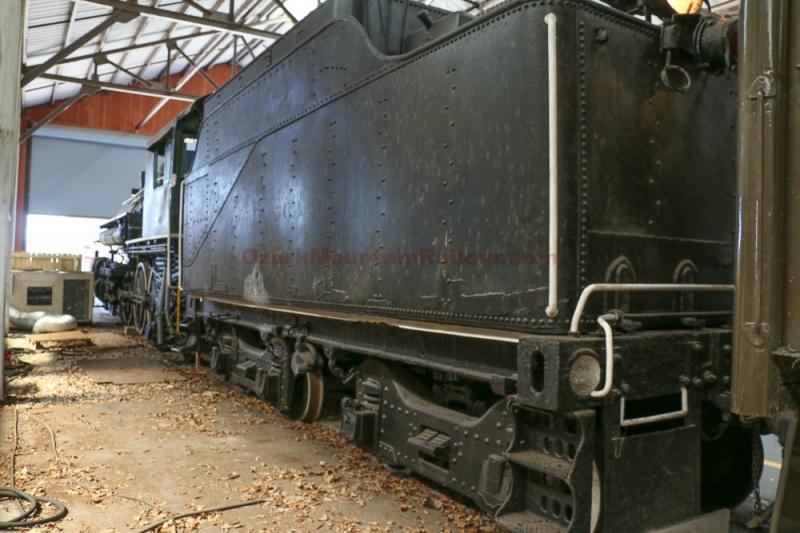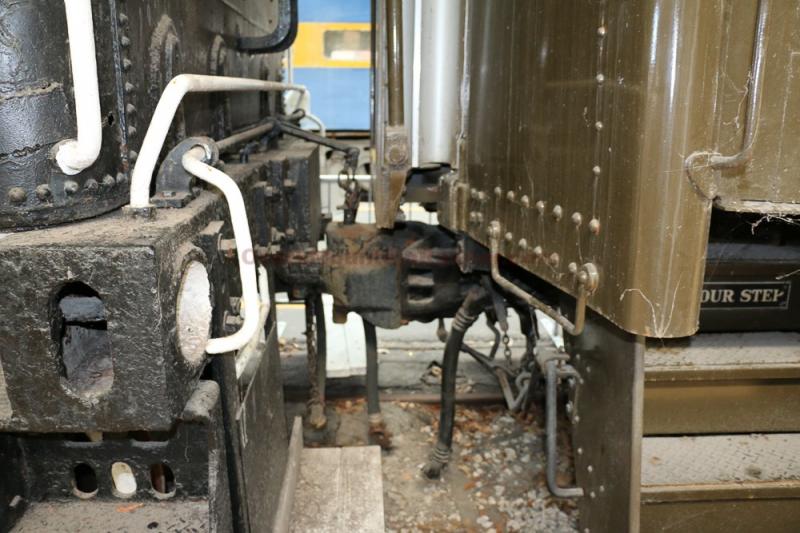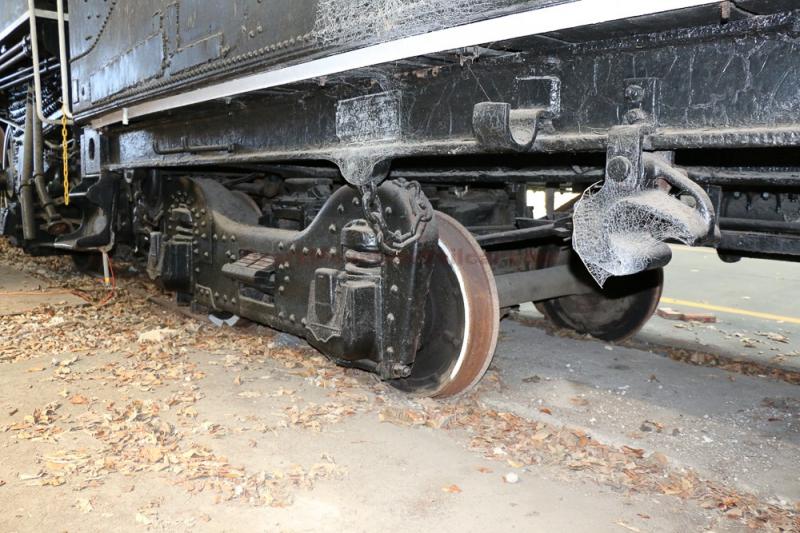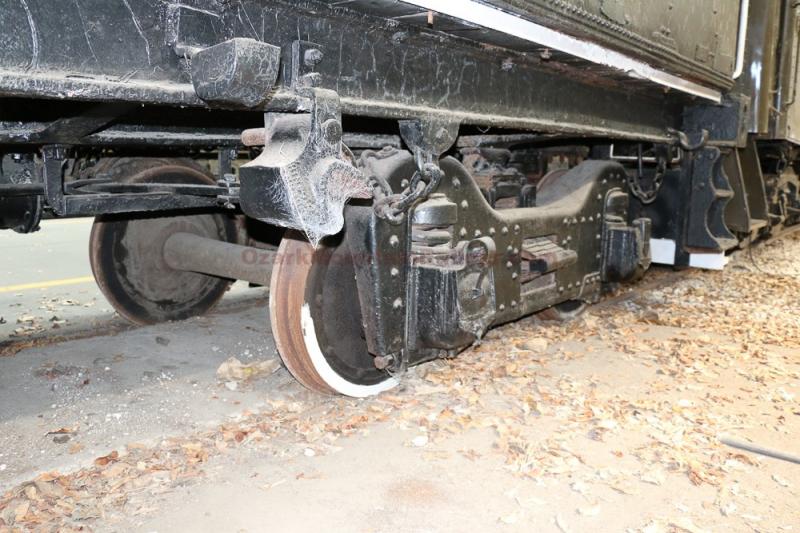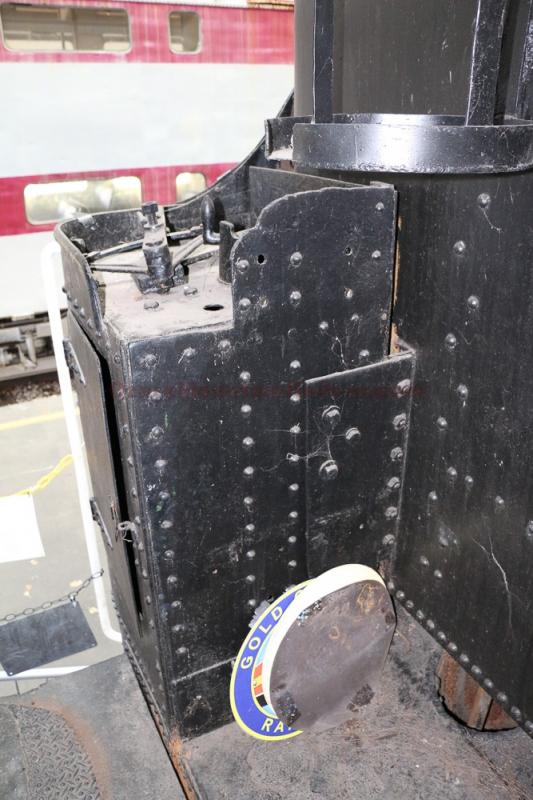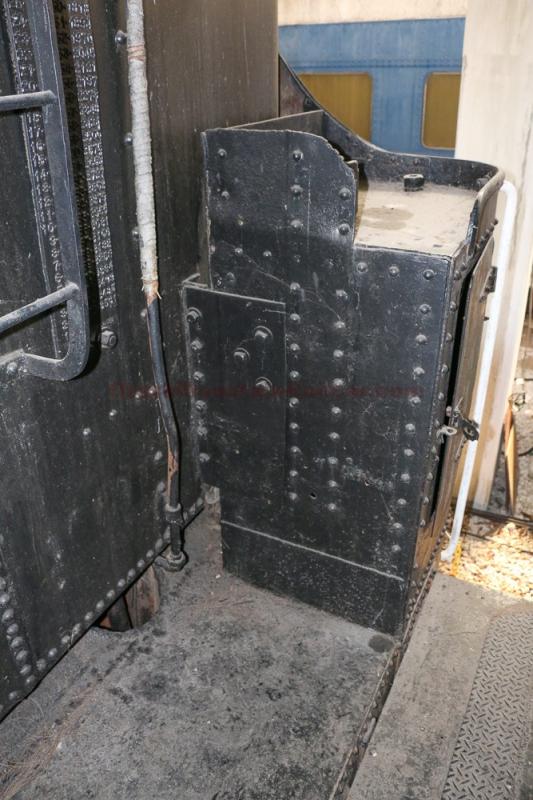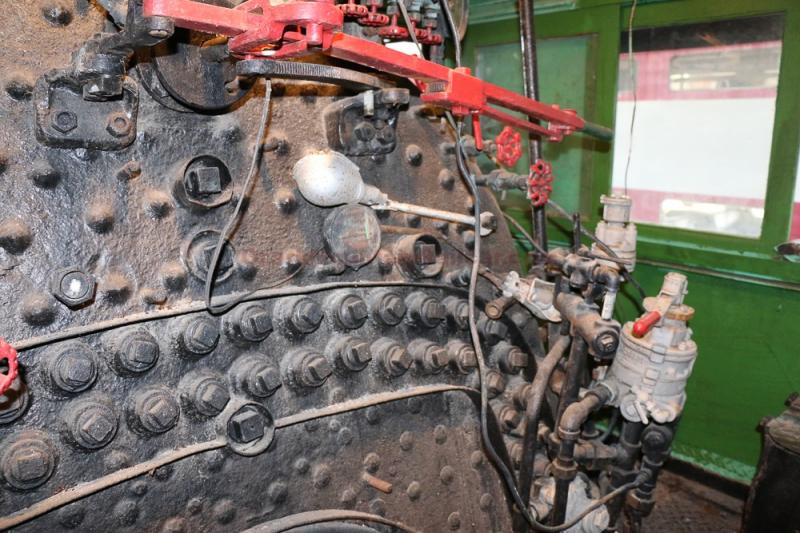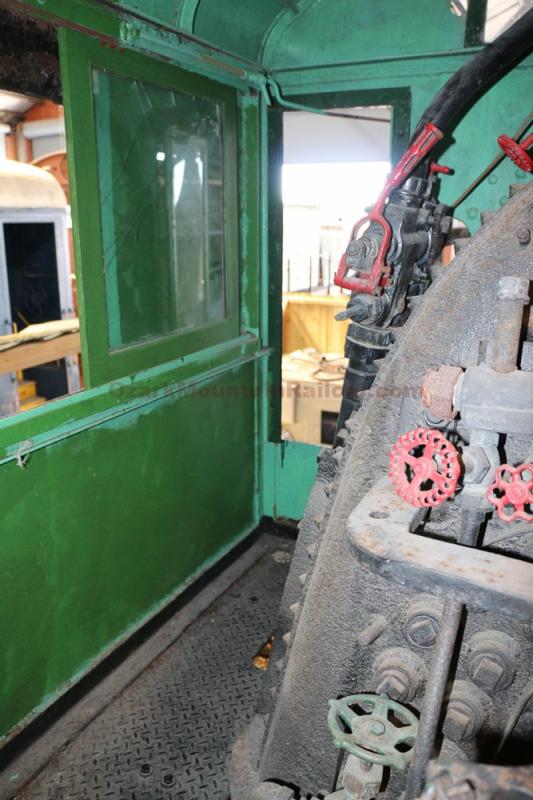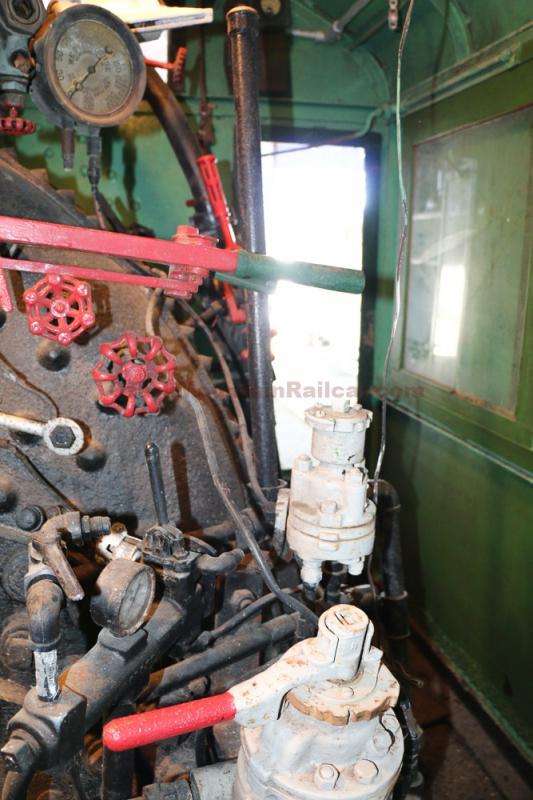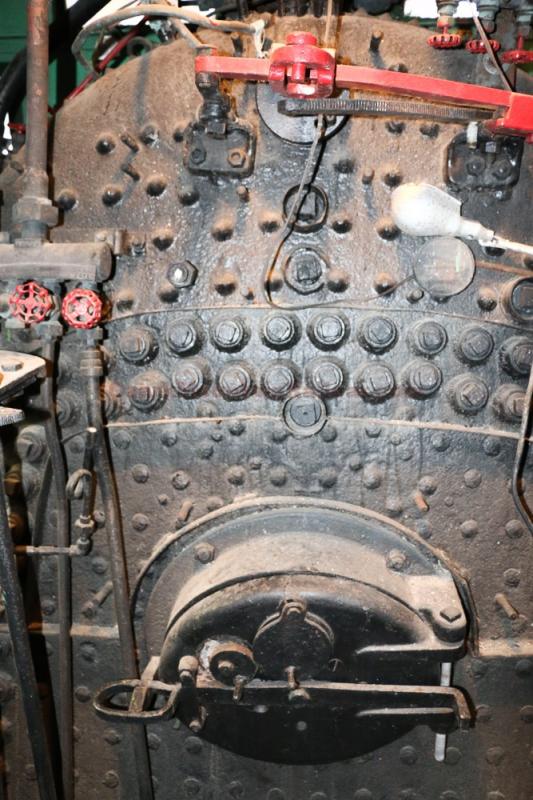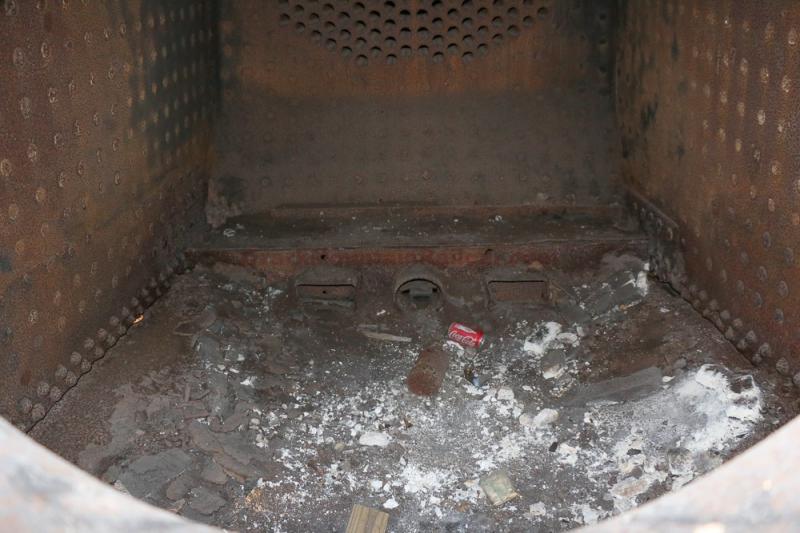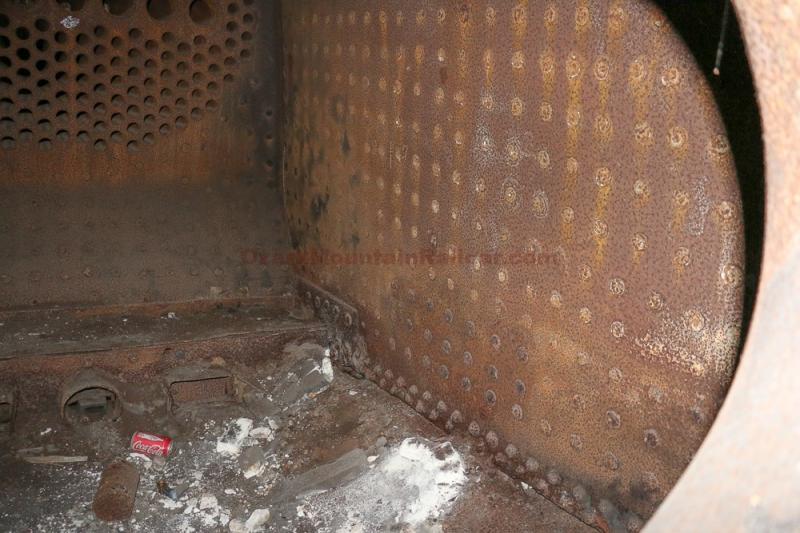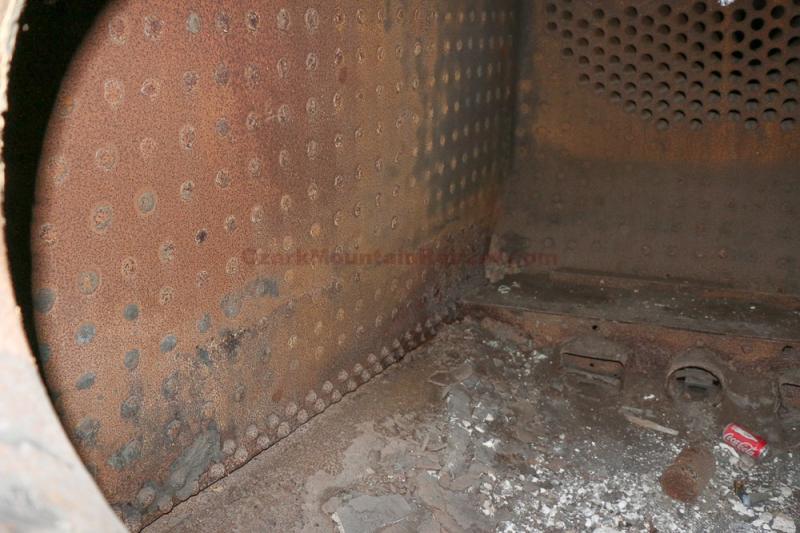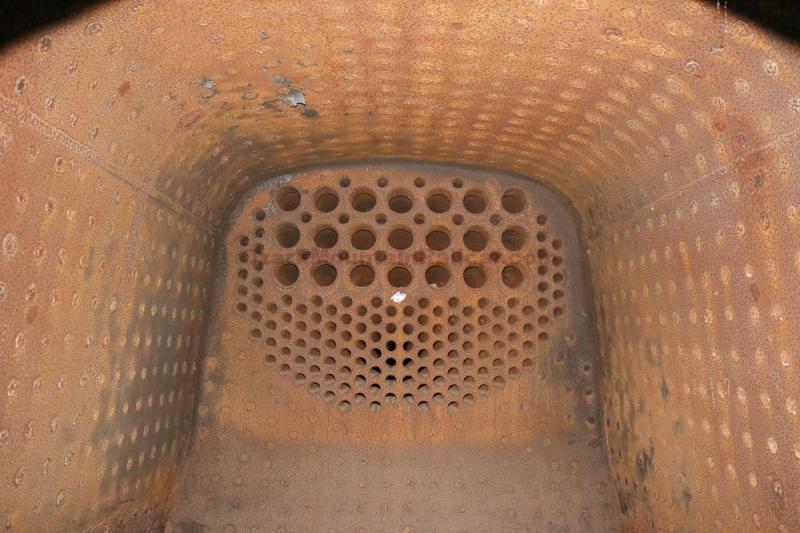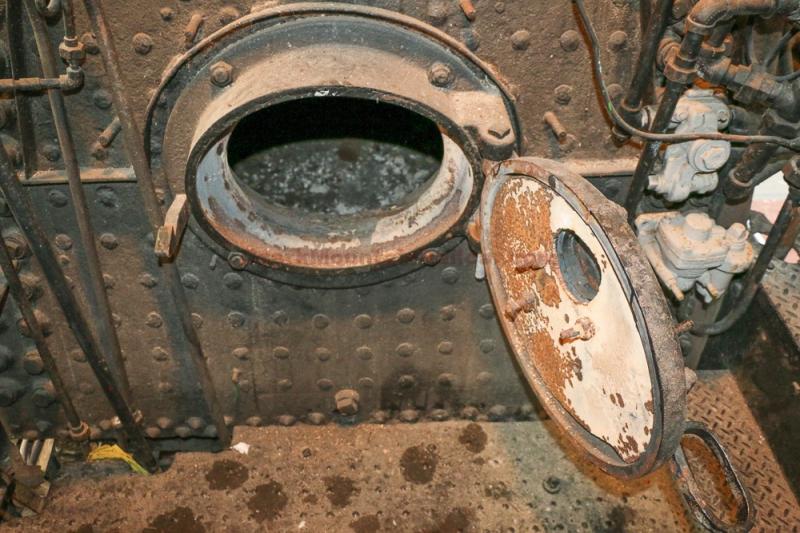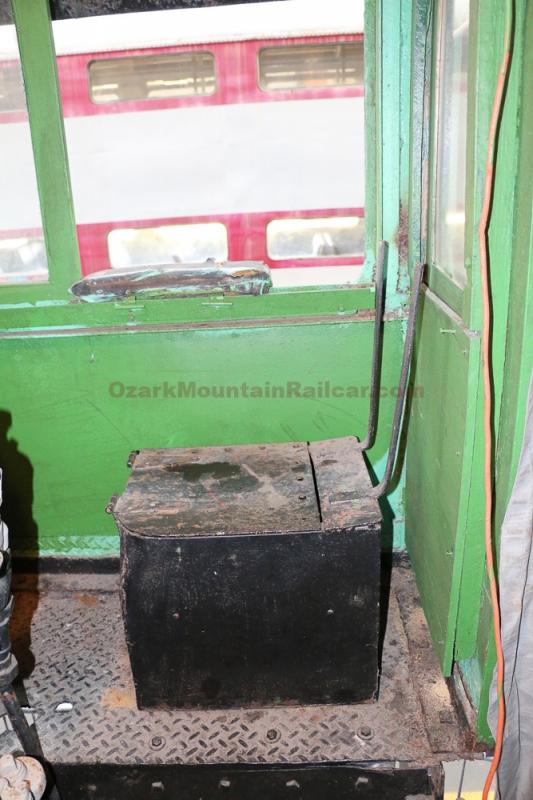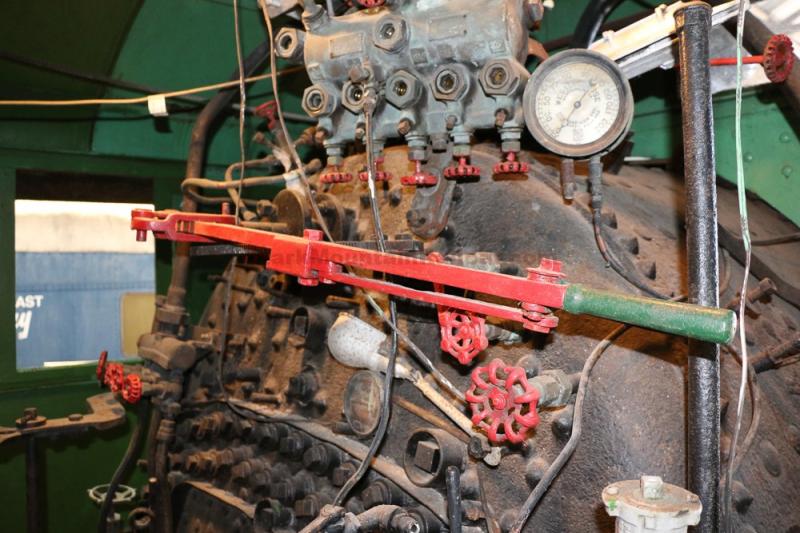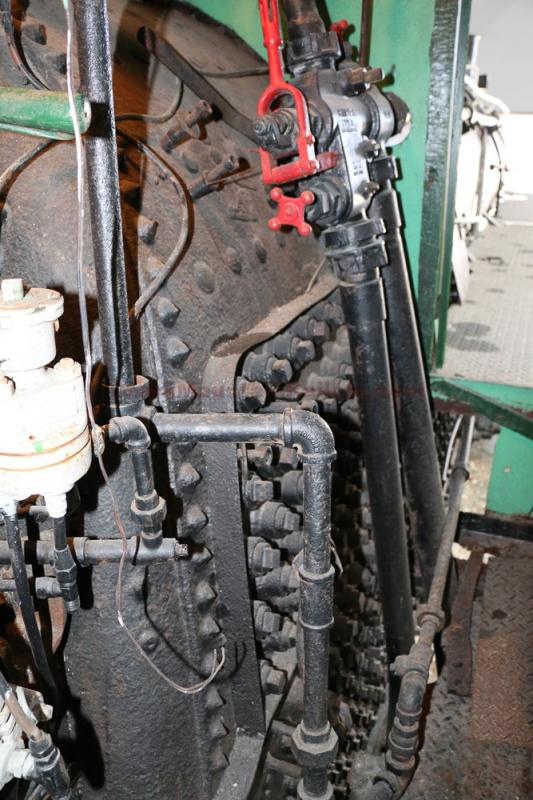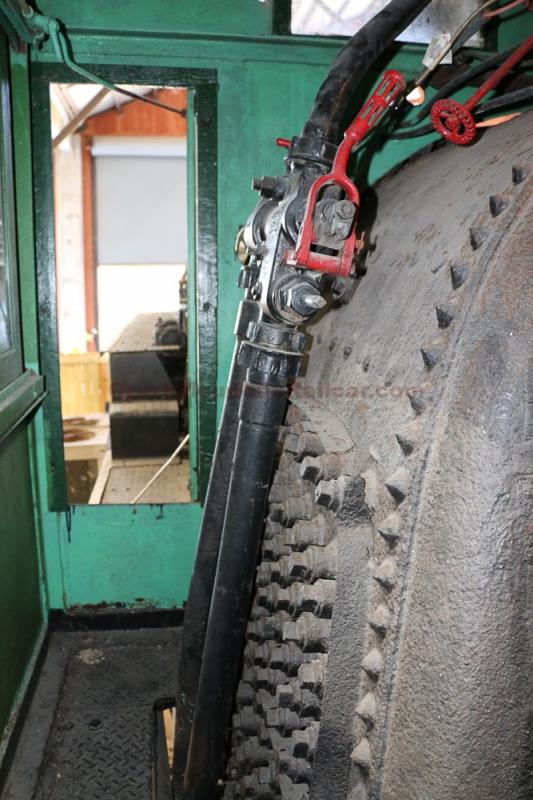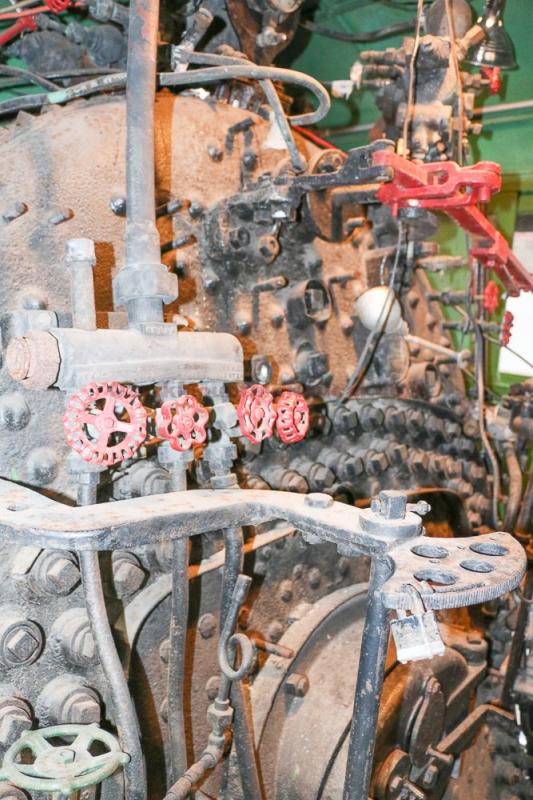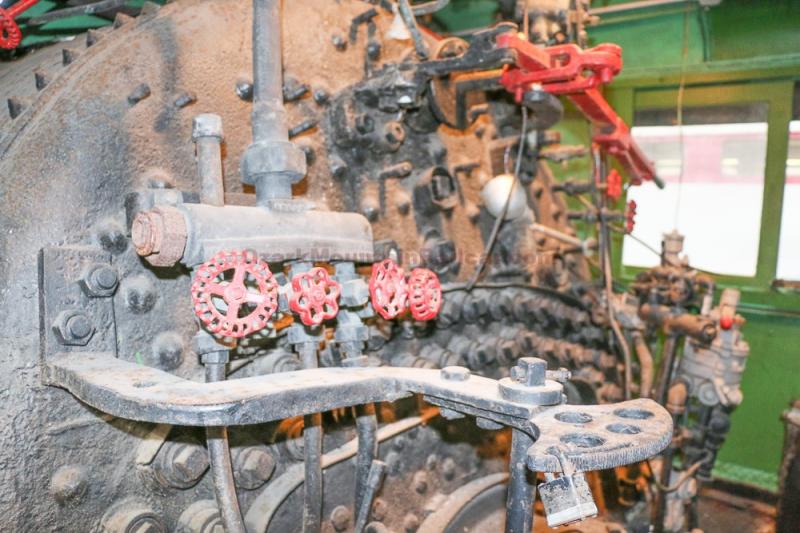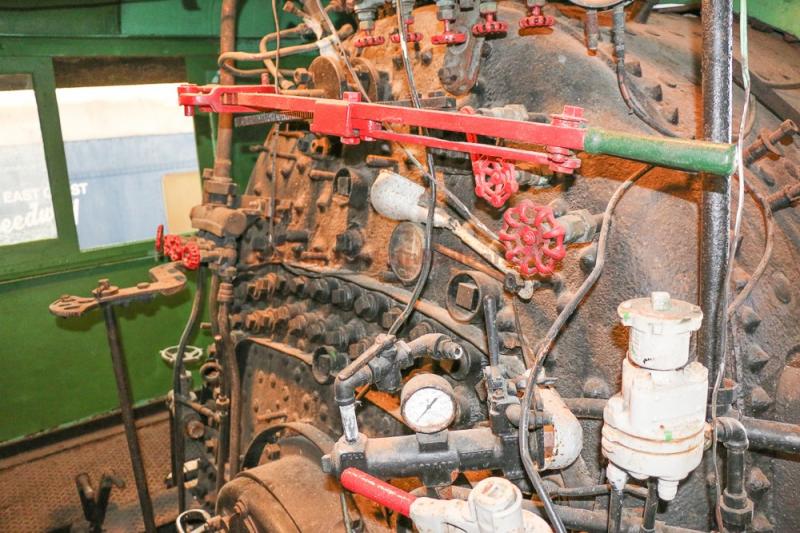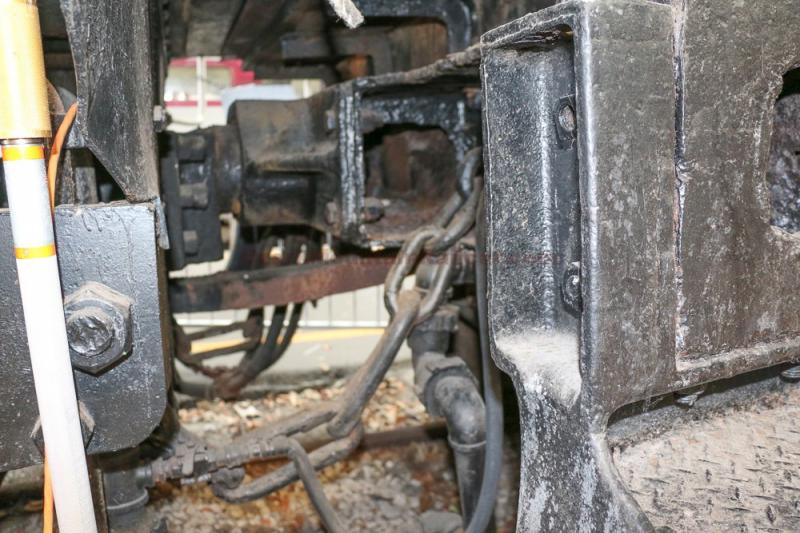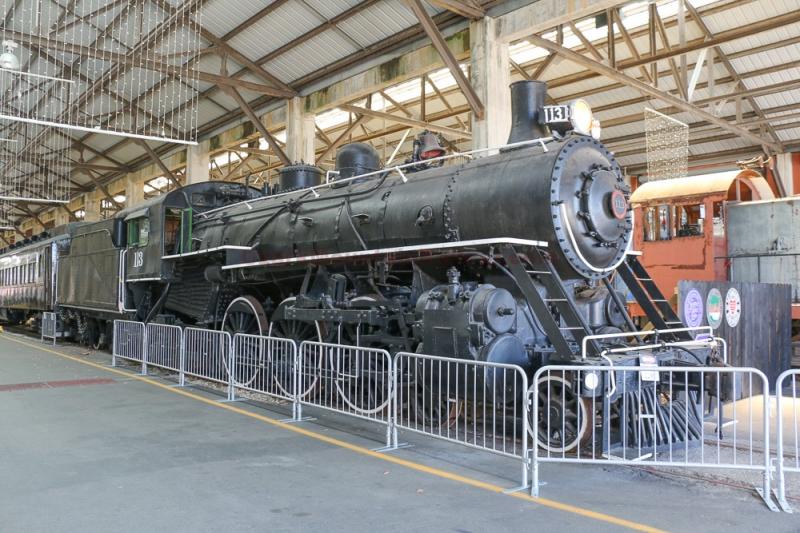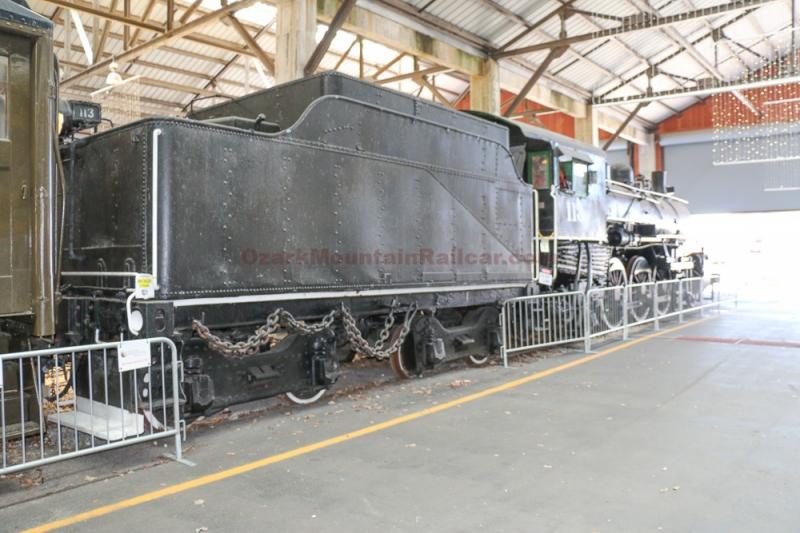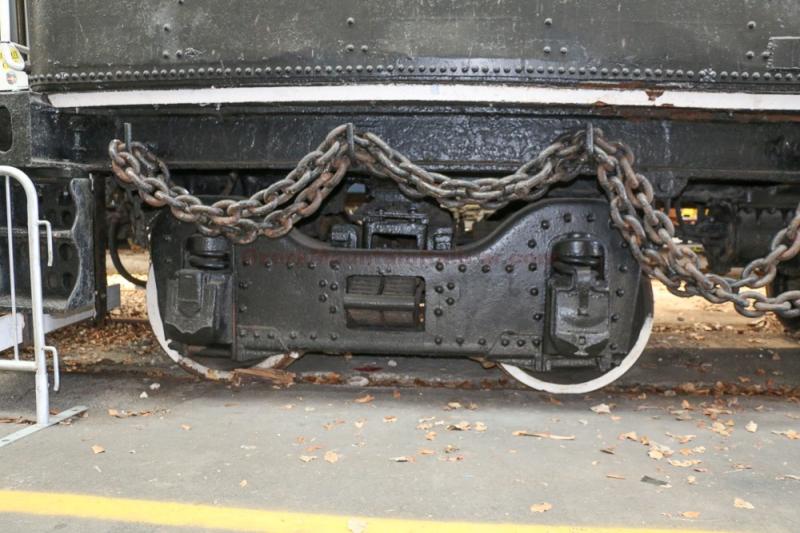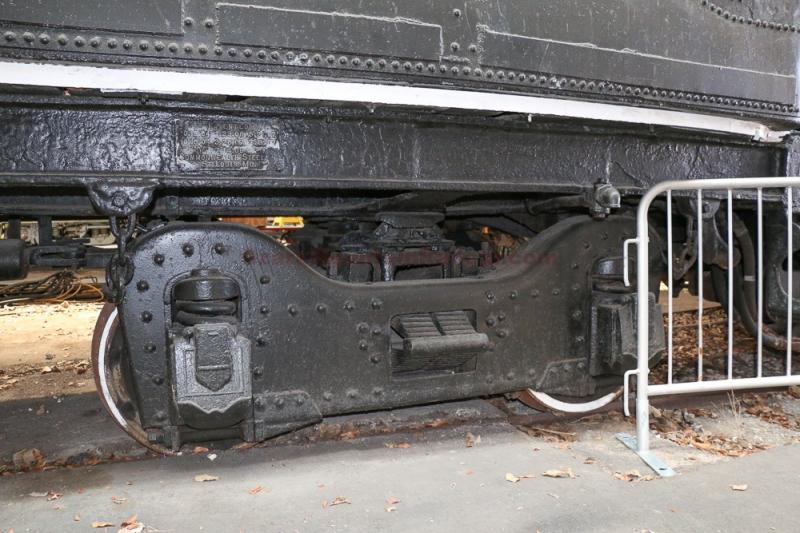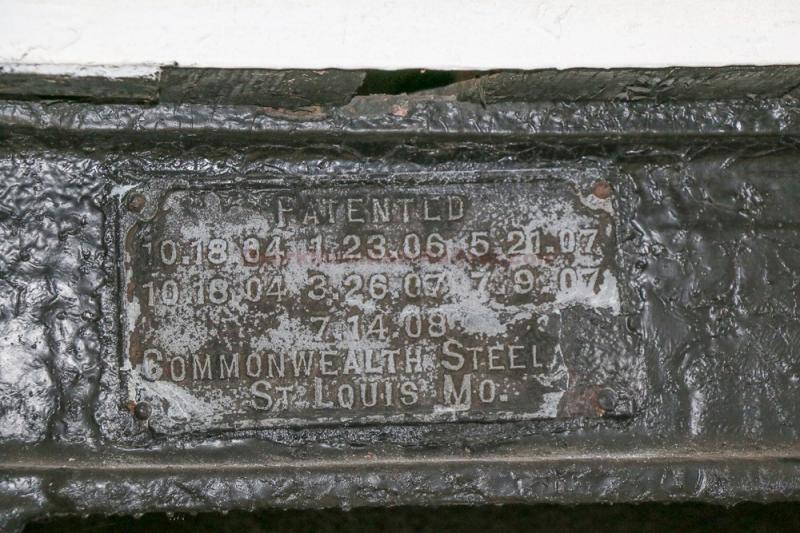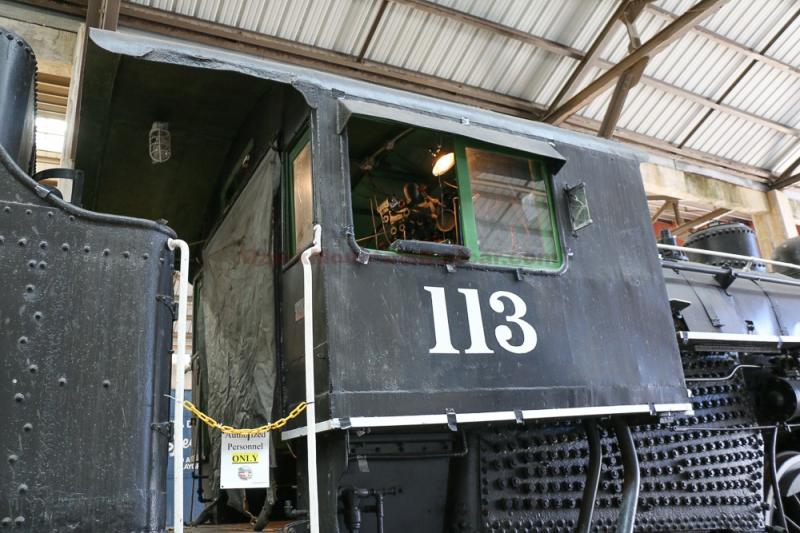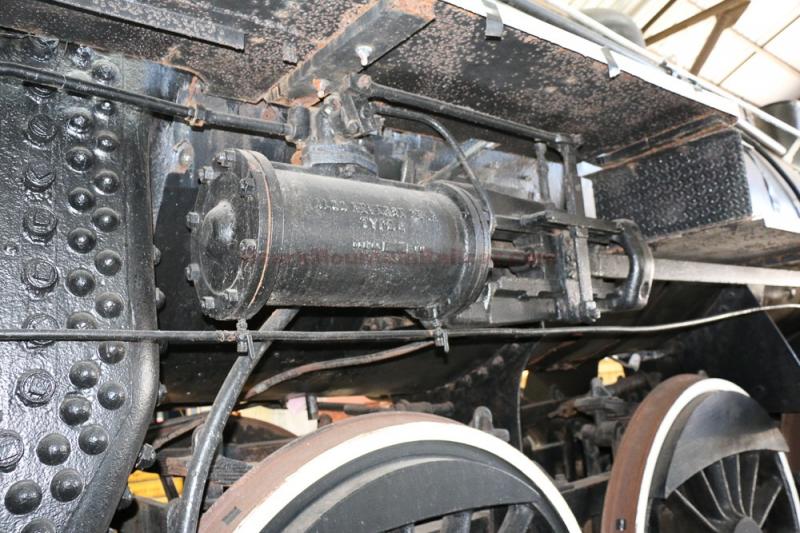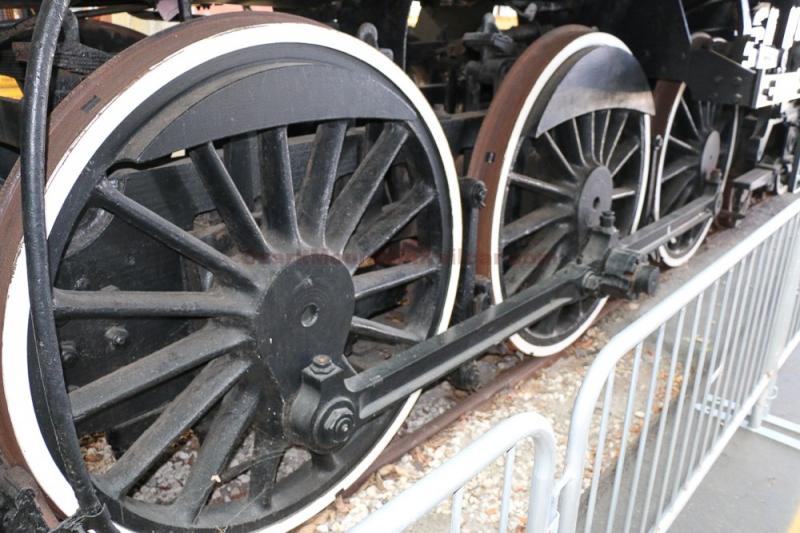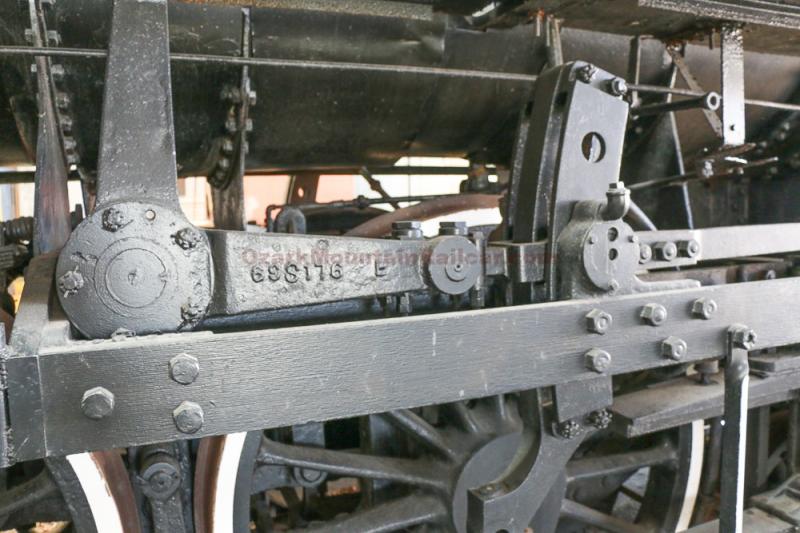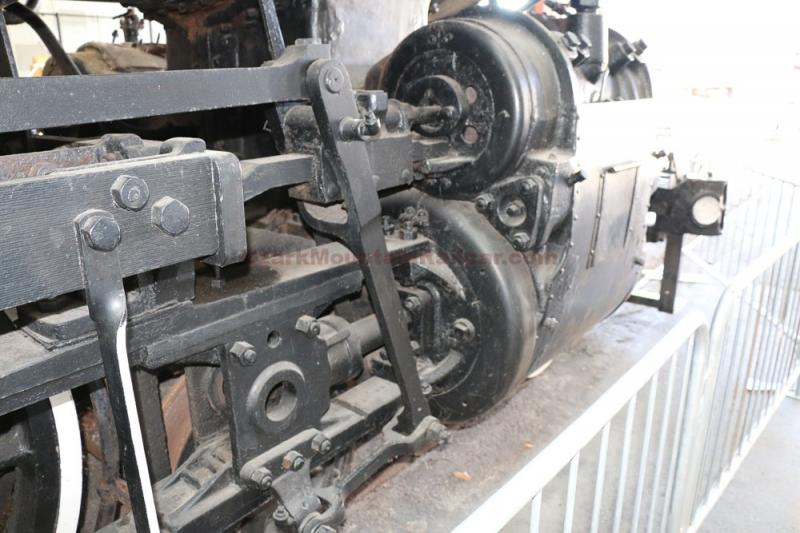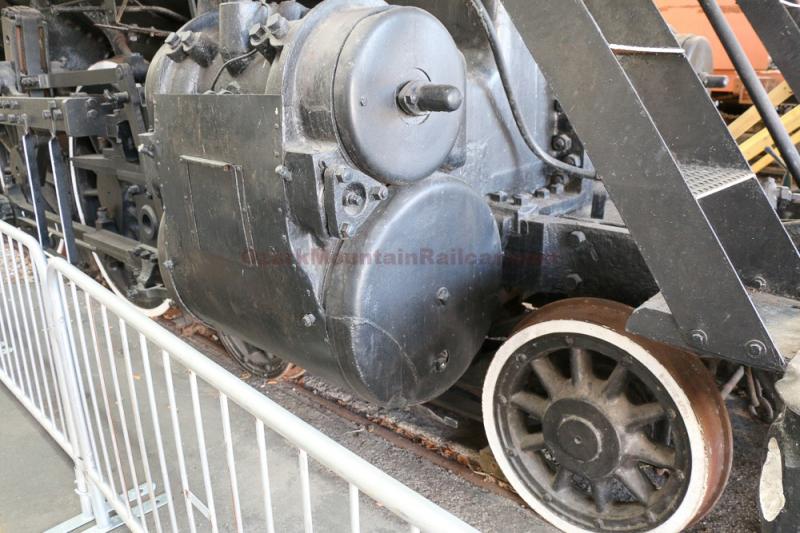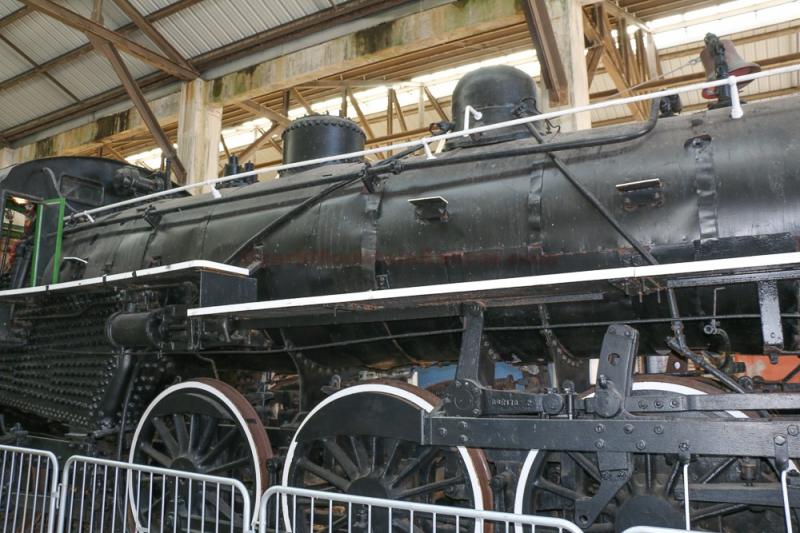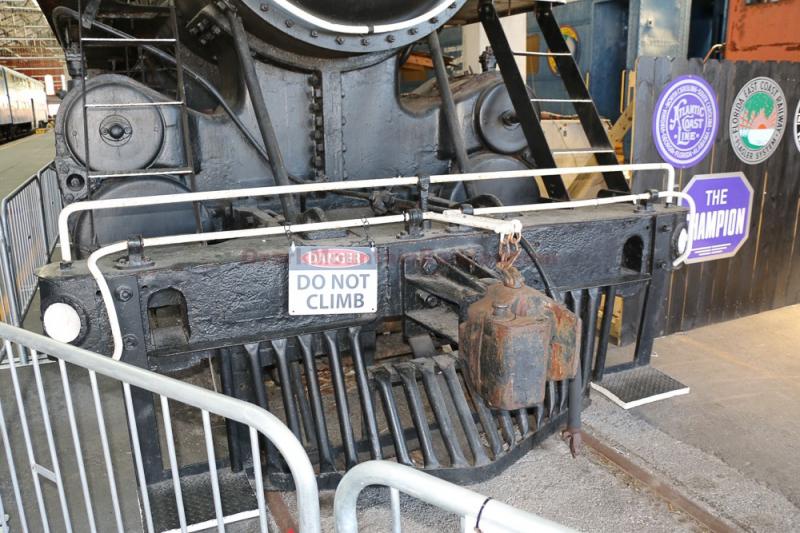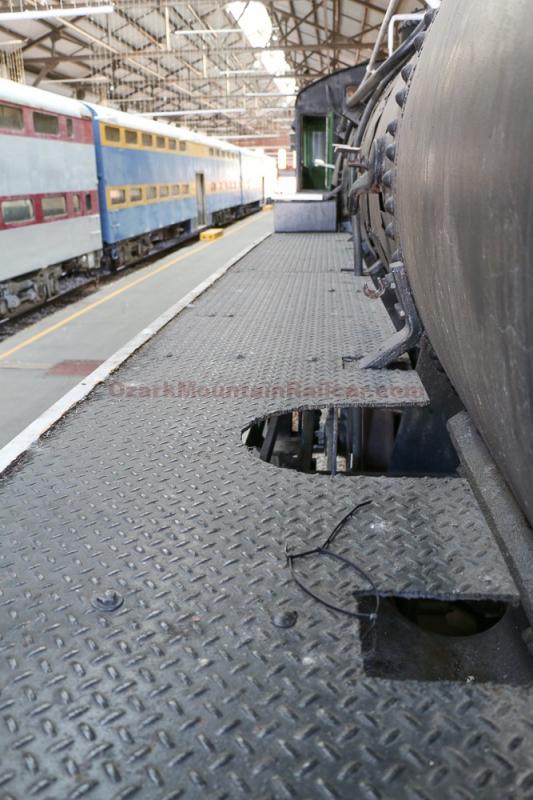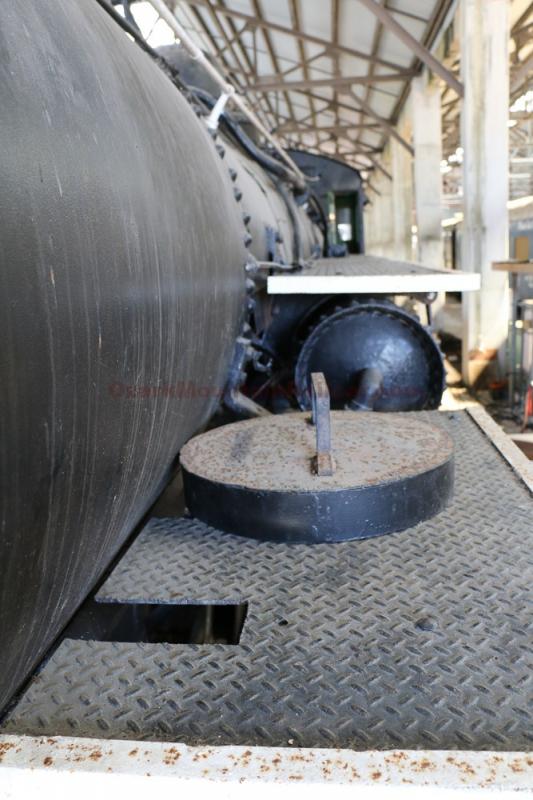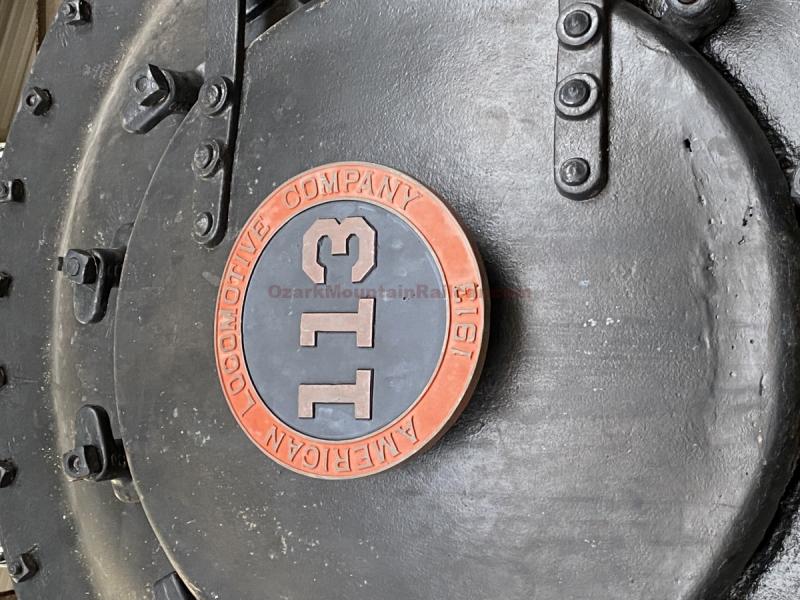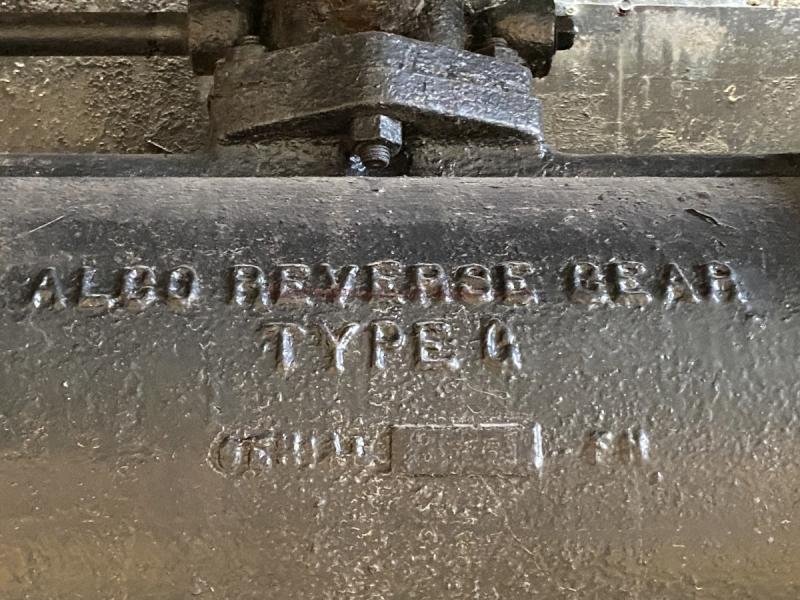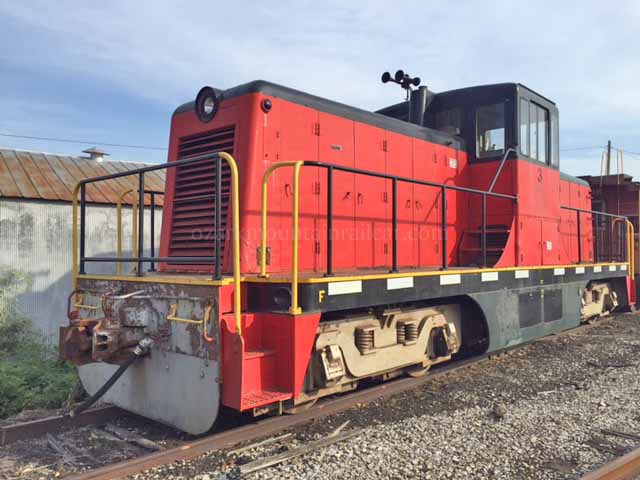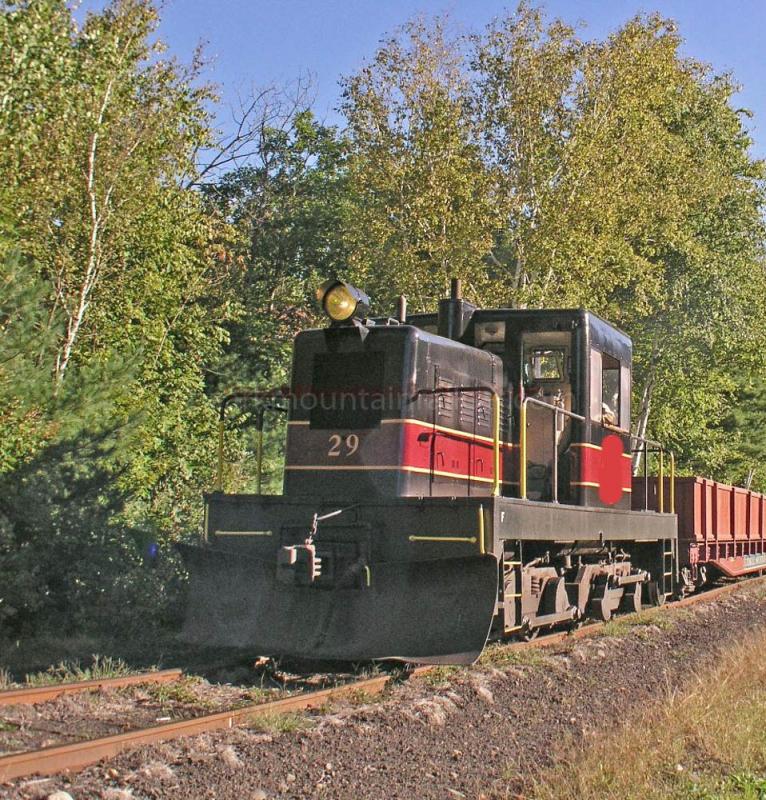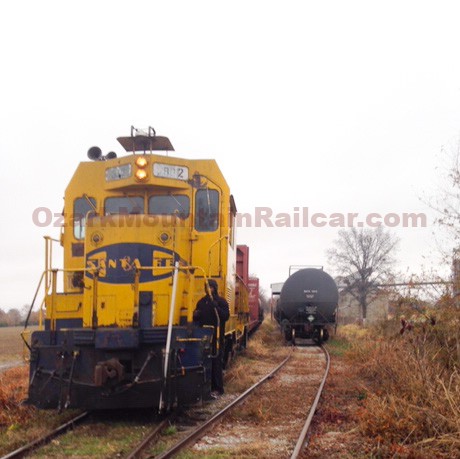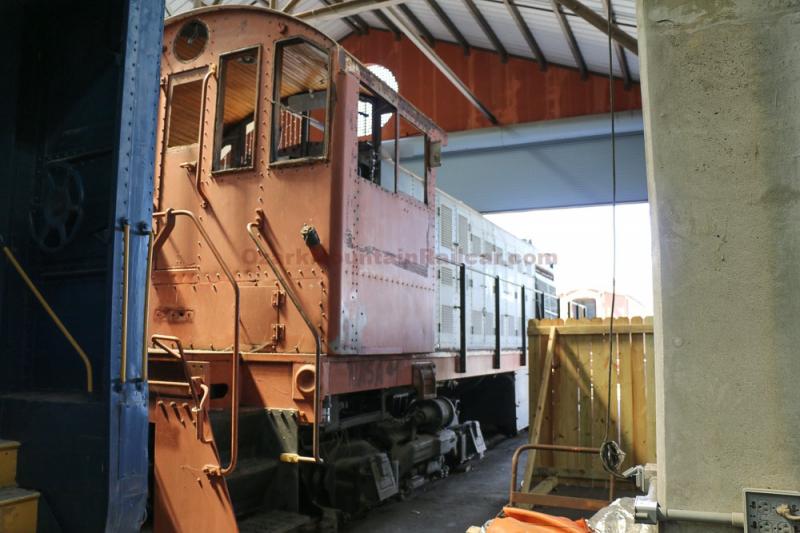- Builder: American Locomotive Company (ALCO) in 1913 Construction No: 53902.
- Wheel Arrangement 4-6-2.
- Engine Type: “Light Pacific.”
- Fuel: “Oil burner (steam atomizing, FEC design).
- Weight: Engine - 204,000 lbs., engine and tender in working order: 371,500 lbs.
- Driving Wheels: 68 Inch Diameter.
- Working Steam Pressure: 180 psi
- Tractive Effort: 28,314 lbs.
- Tender Capacity: Oil: 3,500 US Gallons Water” 7,338 US Gallons
Built in 1913 by ALCO for the Florida East Coast Railroad and assigned number 113. One of 60 "Pacific" style locomotives, #113 operated in regular passenger & freight service over the entire FEC system. Originally a "saturated steam" locomotive, at some point in the early 1920s it was superheated, which brought it up to the same specification as the 1922 ALCO built FEC 151 . Put as simply as possible, saturated steam is only as hot as the temperature at which it has reached boiling point. As a result, when its temperature drops, this so called "wet" steam quickly condenses and produces water droplets. In a steam locomotive, condensation can occur in the steam pipes and cylinders outside the boiler. This reduces the steam volume and therefore requires more water to be evaporated to produce a set volume of steam. The buildup of water in a locomotive's cylinders is also dangerous, as water is less easily compressed than steam and could blow off the cylinder heads when under pressure. To reduce this potential problem, the cylinders are fitted with small exhaust ports called cylinder cocks, which allow the water to be expelled under steam pressure. In 1933, No. 113 was sold to the United States Sugar Corporation it was used mainly to haul train loads of sugarcane from the company's fields to its mill in Clewiston, Florida on the south side of Lake Okeechobee. It would also have switched at the yard in Clewiston, where it was based and worked into the early 1960s. United States Sugar donated No. 113 to the current owner in 1969. At that time, the museum was located in Fort Lauderdale, where No. 113 regularly steamed at weekends. #113 is not currently in operating condition.
Q-How much does it cost to ship a steam locomotive by truck?
A- The costs involved with shipping a steam locomotive will vary a bit depending on the size of the locomotive and the equipment the service provider has and of course the distance it must travel. Normally a steam locomotive will weigh between 100-150 ton, will be approx.110' +/- feet long, ten feet wide and approx. 13-15' high sitting on it's drivers (wheels). The trucking company will need to make a second trip to pick up the drivers and tender and deliver them to the site before the truck arrives with the car body. It is recommended that the car be set on a short piece of track since that is how the car structure was designed. You normally can find used railroad ties at landscaping companies and for rail we suggest contacting a local railroad museum, shortline railroad or scrap yard. On an average you can expect to spend a minimum of $25,000-$75,000+/-. The total price will depend on the trucking company and crane companies in the area. Shipping is the responsibility of the buyer and we are more than happy to discuss the project with any service provider so that fully understand the process. In addition we can recommend independent contractors who can manage the entire move of the locomotive.
